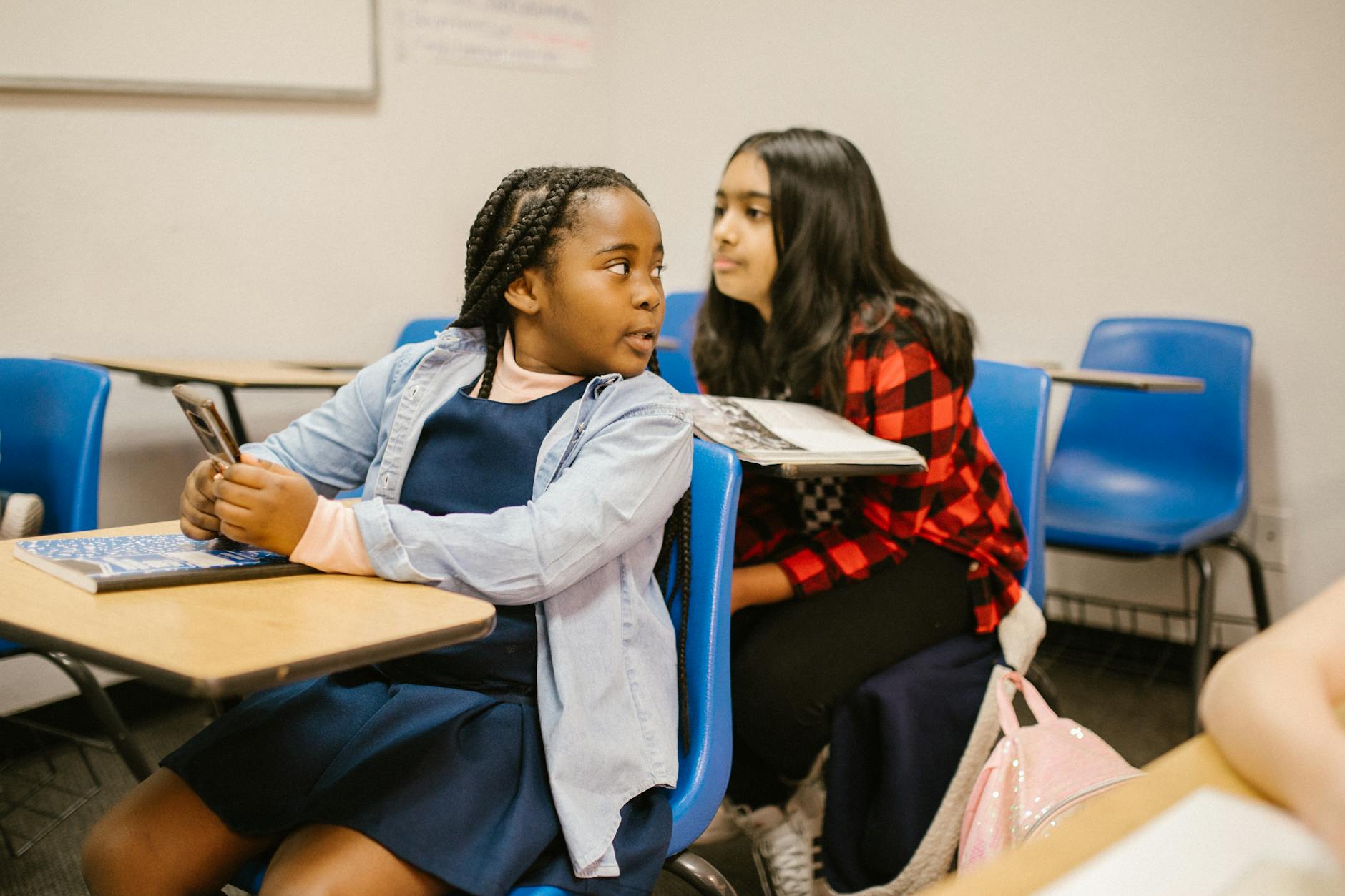How to Create Impactful Marketing Strategies for Australia’s Community Education Programs

Know Your Audience
Understanding your audience is pivotal to the success of any marketing strategy, especially within the non-profit sector. To truly connect with the community service educators and early childhood professionals, you'll need to adopt effective audience research techniques. One approach could be conducting interactive focus groups at charming cafes in Surry Hills, where engaging discussions can reveal audience expectations and pain points. This fresh setting provides a conducive atmosphere for honest feedback.
Audience Research Techniques
To efficiently market programs like aged care online courses, tap into the insights obtained from these focus groups. It's essential to blend both qualitative and quantitative research methods. Surveys can quantify preferences, while social media analysis unravels conversations and sentiments around your topics.
Creating Personas
Developing detailed personas based on your research is a strategic move. Imagine a persona like Mia, a 32-year-old early childhood educator in Sydney, keen on early childhood education courses to advance her career. Craft profiles that reflect the aspirations and challenges of your potential enrollees, catering content specifically to them.
Audience Segmentation
Audience segmentation is the final piece of the puzzle, and it demands precision. Organise your insights to categorise your audience by demographics, behaviours, and interests. This targeted strategy ensures that your messaging resonates effectively with each segment, improving overall engagement and course enrolments. A well-segmented audience forms the backbone of a robust marketing strategy.
Craft Compelling Program Narratives
Creating an impactful narrative around educational programs like a diploma of community services demands a strategic blend of storytelling fundamentals and targeted messaging. Narratives should awaken the curiosity of potential students, providing them with a clear understanding of the transformative experiences these programs offer.
Storytelling Fundamentals
The essence of compelling storytelling lies in authenticity. Focus on relaying genuine experiences and the tangible benefits of the program. For instance, highlight the narratives of past students who have made significant strides in community services. This gives potential enrollees a vision of success rooted in reality. Engaging anecdotes, including overcoming challenges and achieving goals, serve to humanise the program content.
Tailoring Messages for Impact
Adjust the narrative to speak directly to distinct audience segments. When discussing the diploma of community services, ensure the messaging aligns with the values and aspirations of philanthropic individuals and existing professionals in the sector. Tailor your messages to highlight local contexts, such as community needs in Surry Hills, bringing immediacy and personal relevance to the program's utility.
Creating Emotional Connections
To forge a deeper bond, focus on nurturing emotional connections through your storytelling. This can be achieved by utilising meaningful imagery or testimonials from the passionate networking events in the Sydney CBD. Convey the impact of the diploma not just on the student but also on the community they intend to serve. Emotional resonance lies at the heart of inspiring enrolment, encouraging potential students to envision themselves as agents of change.
Utilize Strategic Channels
Social Media Engagement
Engaging with your audience on social media can significantly amplify the visibility of educational programs like community services courses. Platforms such as Facebook and Instagram are ideal for reaching community-focused demographics. During creative brainstorming sessions in Surry Hills or near Bondi Beach, consider crafting dynamic content that is not only informative but truly resonates. Incorporate engaging visuals, videos, and narratives that reflect the impact of these programs on local communities. Empower your online presence with stories and testimonials that showcase the difference these courses make in real people’s lives.
Maximizing Online Advertising
Online advertising can be a powerful tool if used strategically, especially when considering the limited budgets typical in the nonprofit sector. Utilising targeted ads on Google and social media platforms can ensure your message reaches the right people at the right time. Consider conducting strategic discussions at cafes in Surry Hills to explore innovative ideas like geolocation targeting. These tailored ads can focus on areas with a high interest in educational opportunities or community initiatives, optimizing each dollar spent.
Leveraging Email Campaigns
Email remains a cornerstone of effective direct marketing. Craft email newsletters that blend storytelling with a clear call-to-action, encouraging enrollment in your programs. Highlight success stories, infuse a sense of urgency, and personalize messages to create a deeper connection with the audience. Regularly analyse open and click-through rates to refine your approach. Consider incorporating insights drawn from networking events in the Sydney CBD to enhance these campaigns' effectiveness. This ensures your email marketing remains not only relevant but effectively drives engagement and enrolment.
Monitor and Adjust Strategies
Tracking Key Metrics
In the bustling nonprofit sector, it’s crucial to focus on key metrics that illuminate campaign performance. Consider metrics like click-through rates, conversion rates, and audience engagement levels when assessing your strategies. This hands-on approach allows you to identify what's working and which areas require adjustment. On a more social level, meetings over a latte in Surry Hills can offer new insights and energising perspectives on your metrics interpretation. These face-to-face interactions often bring fresh angles to your remote analytics sessions.
Analyzing Digital Engagement
Understanding the digital footprint of your campaigns is not just about numbers; it’s about discerning patterns and trends. Regularly comb through your digital engagement metrics, dissecting data such as page visit durations and user interactions. This analysis is comparable to a creative brainstorming session near Bondi Beach, where different ideas come together to form a coherent whole. Insights gained here can help tailor your programs to potential participants, making initiatives like a diploma in early childhood education resonate more strongly with your audience.
Iterative Improvements
The secret sauce to effective strategy lies in its evolution, akin to refining ideas after networking events in the Sydney CBD. Revisit your strategies, applying updates based on recent analytics and feedback. These updates should be iterative, allowing for gradual refinement and adjustment over time. Each tweak, no matter how small, helps steer your campaigns closer to desired outcomes—like increased enrolment in essential courses. Regular refinement reassures stakeholders of the campaign’s direction and reinforces your dedication to impactful marketing.
Avoiding Common Missteps
Forgetting Audience Diversity
In a vibrant metropolis like Sydney, overlooking the rich audience diversity is a major pitfall. We’ve all enjoyed those lively strategy debates in cafes on Crown Street, yet sometimes we miss recognising the eclectic mix of backgrounds our community represents. From language and culture to socio-economic factors, understanding these dynamics forms the backbone of effective community engagement. It's essential to embed this awareness into our audience segmentation to avoid missteps.
Insufficient Message Personalisation
When we gather for those creative brainstorming sessions over a flat white near Bondi Beach, personalised messaging should be at the forefront of our minds. Crafting content that speaks directly to individuals requires more than just knowing their names; it’s about resonating with what truly matters to them. Dive into the wealth of data you gain from online surveys and social media to tailor your narratives. Remember, personalisation is your secret weapon for fostering authentic connections.
Misguided Budget Allocation
Navigating fundraising nuances can sometimes feel like a labyrinth during those fast-paced discussions in the Sydney CBD. Misguided budget allocation often stems from underestimating the importance of strategic channel use or amplifying one over others without assessing their return on investment. Take time to regularly evaluate your campaigns, ensuring each dollar stretches to its maximum potential. Whether reinvesting in successful digital ads or reallocating funds toward untried channels, keeping a sharp eye on returns is crucial. Always conclude your reviews with a strategic plan to align your budget with your goals.


